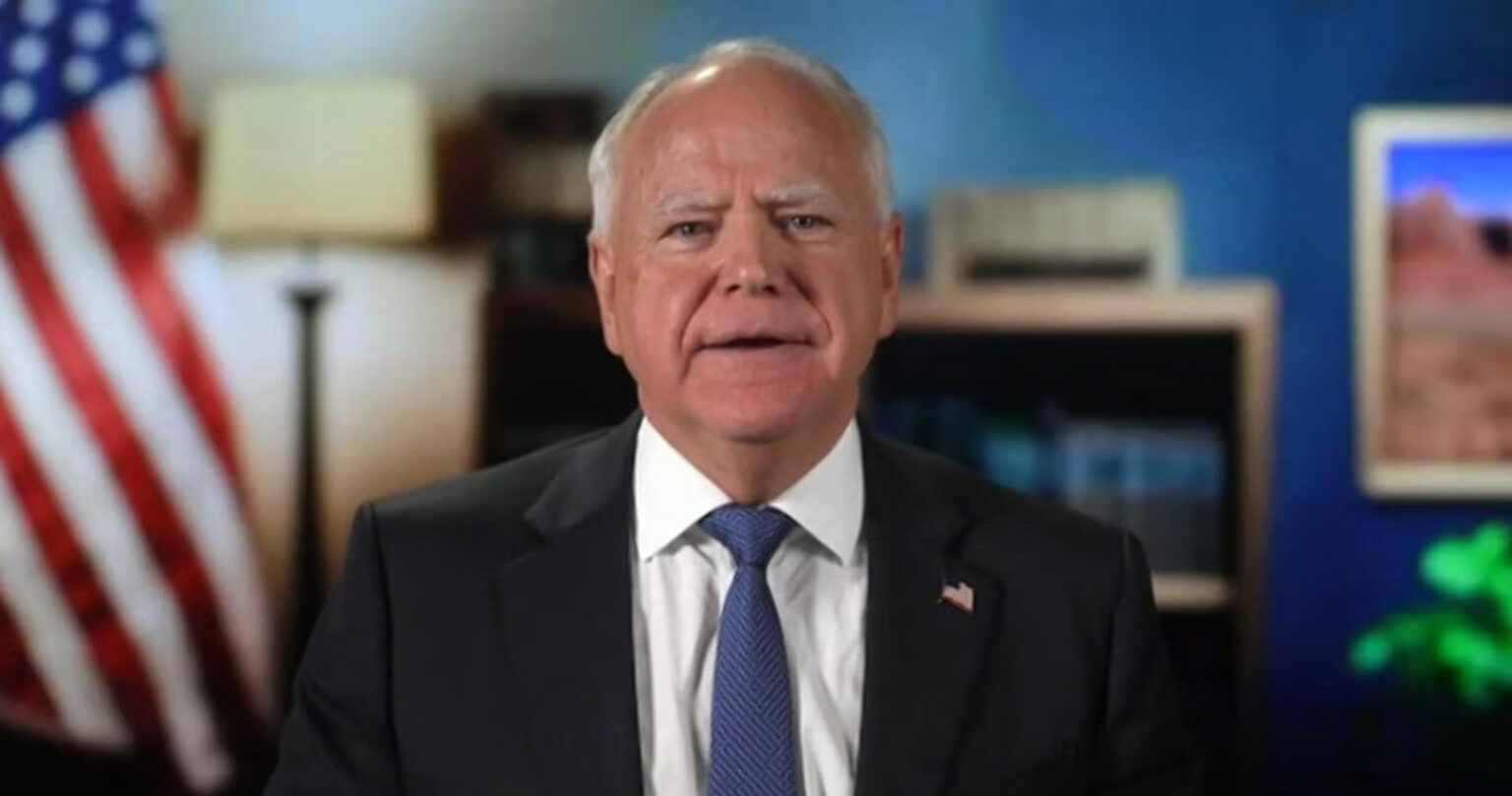The post-debate reactions to the showdown between Vice President Kamala Harris and former President Donald Trump have sparked a wave of differing opinions, particularly regarding the performance of the debate moderators, David Muir and Linsey Davis of ABC News. Following the debate, Harris’s running mate, Minnesota Governor Tim Walz, expressed support for the moderators, while prominent conservative commentator Megyn Kelly tore into them for what she described as blatant bias.
Tim Walz’s Support for Moderators
In a post-debate interview with MSNBC, Governor Walz praised the moderators for holding Trump accountable. He noted their efforts to challenge Trump on several of his claims, remarking that it added necessary scrutiny to the discussion.
“I appreciate the moderators calling him out on this, re-questioning him, making it clear that he’s not lost,” Walz told MSNBC. “But look, this guy is a threat. This is gonna be a close election. We know it comes down to the battleground states.”
Walz’s comments align with the Democratic Party’s broader strategy of portraying Trump as a continued danger to democracy, and the governor took the moment to emphasize the high stakes in the upcoming election.
Megyn Kelly’s Sharp Criticism of Debate Moderators
While Walz approved of the moderators’ handling of Trump, Megyn Kelly had a starkly different take. The SiriusXM podcaster and former Fox News star slammed David Muir and Linsey Davis, accusing them of tilting the scales in Harris’s favor.
In a fiery blog post on her website, Kelly wrote that Muir and Davis “did exactly what their bosses wanted them to do,” claiming that ABC News chief Dana Walden, a close friend of Kamala Harris, was behind the bias. According to Kelly, Walden played a pivotal role in introducing Harris to her husband, Doug Emhoff, and the moderators acted as a mouthpiece for Walden’s agenda.
“It was three against one on the debate stage this evening,” Kelly stated, asserting that the moderators acted as if they were participants in the debate, rather than neutral observers.
Accusations of Unfair Fact-Checking
Kelly’s harshest criticism focused on how Muir and Davis handled fact-checking during the debate. She alleged that the moderators were overly aggressive in fact-checking Trump, while letting Harris off the hook for any misleading statements. Kelly also accused them of editorializing, particularly during a moment when Trump attempted to clarify that a comment he made about losing the 2020 election “by a whisker” was sarcastic.
Kelly singled out Muir’s interjection, where he told Trump, “I didn’t hear sarcasm,” accusing the moderator of overstepping his role. “Who gives a sh-t what you heard? Who died and left you political analyst in chief?” Kelly wrote, adding that such comments went beyond journalistic integrity and ventured into outright bias.
The commentator also argued that the moderators’ line of questioning was unfair, often framing questions to Trump in a negative light while giving Harris softer treatment. According to Kelly, Muir and Davis consistently asked Trump to reflect on “how terrible” his past comments were, followed by Harris being invited to critique Trump in response.
Bias Claims and Potential Backlash
Kelly concluded her post by suggesting that the apparent bias could backfire on the moderators and ABC News. “They are openly working to sink Donald Trump,” she claimed. Kelly expressed hope that the American public would recognize the moderators’ bias and perhaps even feel sympathy for Trump as a result.
“No fair-minded person could think anything other than that,” Kelly argued, suggesting that the treatment Trump received during the debate would generate backlash against the media.
Final Thoughts
The post-debate discourse highlights the deep polarization in American politics and media. While Governor Walz praised the moderators for scrutinizing Trump, Megyn Kelly’s fiery criticism pointed to what she believes is an ongoing pattern of media bias against the former president. As the 2024 election draws closer, the debate over media fairness is likely to continue, with both sides accusing the other of manipulating narratives. Whether voters will see through the media dynamics, as Kelly hopes, or will rally behind the Democratic messaging remains to be seen.
